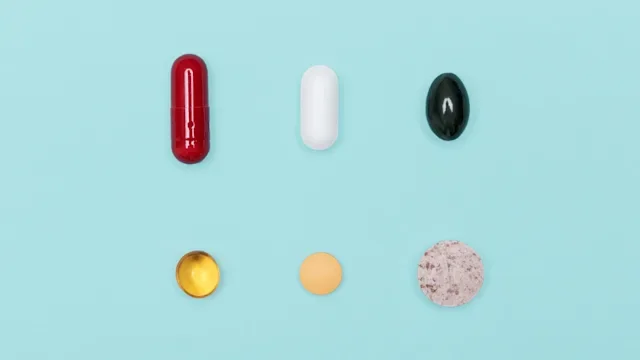Key takeaways:
Selenium is essential for health, but you only need small amounts.
Nuts, grains, seafood, meat, and dairy products are all good sources of selenium.
Most people get enough selenium in their diet and don’t need supplements.
There is no evidence that selenium supplements are helpful in people who have normal selenium levels.
What is selenium?
Selenium is a natural mineral found in soil and foods that some people take as a dietary supplement. It is an essential trace mineral — meaning your body needs it to function, but only in small amounts.
Selenium is necessary to make proteins that help cells in your body function properly. It is also an important antioxidant. This means that selenium is helpful in repairing any damaged cells in the body. Selenium also has an especially important role in thyroid function and the metabolism of thyroid hormone.
People often use selenium as a supplement if they have selenium deficiency (lower than normal levels of selenium). This occurs in regions where selenium content in the soil is low, causing low dietary intake. You can also take selenium if your body doesn’t absorb it well due to certain health conditions.
Search and compare options
Selenium: Sources and supplements
You can get selenium in your diet from both plant-based and animal-based foods. Common food sources of selenium include:
Nuts (Brazil nuts, cashews)
Seafood (tuna, halibut, sardines, shrimp)
Meats (ham, steak, turkey, chicken, beef liver)
Grains (pasta, lentils, breads, oatmeal)
Dairy products (milk, cottage cheese, yogurt)
Eggs
The amount of selenium in both plant-based and animal-based foods will vary. How much selenium you get from your food depends on the farm soil where your food comes from. There is often no clear way to know how much selenium is in the food you are eating. Still, most people in the U.S. get adequate amounts of selenium in their diets.
In some cases, it is difficult to get enough selenium from your diet alone. Conditions such as Crohn’s disease, weight loss surgery, and other serious gastrointestinal illnesses may make it harder to absorb nutrients like selenium from your diet.
For those who are at risk of selenium deficiency, supplements are an option.
Selenium supplements come in two forms, selenomethionine or sodium selenate. Selenomethionine is more widely used as a pure selenium supplement, and sodium selenate is in many multivitamins.
Read more like this
Explore these related articles, suggested for readers like you.
Selenium is available over the counter as:
Capsules (100 mcg to 200 mcg capsules)
Tablets (50 mcg to 200 mcg tablets)
Oral liquid
It is also available as an intravenous (IV) solution when prescribed for selenium deficiency.
Another type of selenium is selenium sulfide. This form is available as a medicated lotion and shampoo that treats minor skin conditions like dandruff. But selenium sulfide is different from selenium dietary supplements. Selenium applied to the skin will not affect blood levels of selenium.
Selenium supplement dosing
The recommended amount of selenium your body needs each day increases with age. The daily recommendations are as follows:
Children
1 to 3 years old: 20 mcg
4 to 8 years old: 30 mcg
9 to 13 years old: 40 mcg
14 to 17 years old: 55 mcg
Adults
18 years old and up: 55 mcg
Pregnant people: 60 mcg
Nursing people: 70 mcg
On average, most people get more than 100 mcg of selenium from their diets each day, so they don’t need selenium supplements. If you have a condition that puts you at risk for not meeting the daily allowance of selenium, supplements may be necessary.
Is it safe to take selenium every day?
It depends. Taking selenium each day if you don’t have a deficiency could lead to higher than normal levels. The recommended limit for adults is 400 mcg per day from both diet and supplement sources.
Common uses for selenium supplements
People with low levels of selenium may use selenium as a supplement. In these people, selenium supplements may prevent or treat complications such as muscle disorders, thyroid disorders, heart disease, and immune dysfunction.
What are the symptoms of selenium deficiency?
Symptoms of selenium deficiency can vary based on severity but may include:
Achy bones and joints
Muscle pain
Fatigue
Heart rhythm abnormalities
Signs of heart failure
Depressed mood
Selenium deficiency is not common. The only way to know if you have low selenium levels is to get a blood test. You are more likely to have a selenium deficiency if you have:
A diet low in selenium (not common in the U.S.)
Chronic diarrhea
Gastrointestinal surgeries or disorders that can affect absorption
Inflammatory bowel disease, like Crohn’s disease
HIV
Kidney failure with dialysis
The science behind selenium
Taking selenium supplements is helpful only in people with low levels of selenium. There is not enough evidence to suggest that there is any added health benefit in those with normal selenium levels.
While people with dementia tend to have low levels of selenium, supplements do not help prevent dementia.
Selenium also has antioxidant properties that researchers tested for help in cancer prevention. But there is no clear evidence to support selenium supplements as useful in preventing cancer.
Selenium supplement interactions
Selenium may interact with some medications and make them more or less effective.
Medications that may be more potent or longer lasting if you take them with selenium include:
Clopidogrel (Plavix)
Warfarin (Coumadin)
Certain sedative medications, such as barbiturates
Medications that may be less effective if you take them with selenium include certain cholesterol medications, such as simvastatin (Zocor).
On the other hand, some medications may lower your levels of selenium. These include:
Selenium supplement side effects
Selenium supplements don’t have too many side effects when taken as directed. People who take more selenium than is recommended may experience side effects such as:
Garlic-smelling breath
Brittle hair or nails
Hair or nail loss
Changes in teeth color
Sleepiness
Feeling more irritable than normal
Skin rashes
Nausea
Diarrhea
Safety of selenium supplements
Most people can safely take selenium supplements, including people who are pregnant or nursing.
Some people should use caution with selenium supplements, such as people with kidney problems or severe gastrointestinal (GI) issues.
Disclaimer: The FDA does not test supplements for safety and effectiveness. Supplements can contain harmful substances. They can also affect how your medications work. Always speak with your healthcare provider before taking any supplement.
References
Jin, J., et al. (2017). Trace elements in parenteral nutrition: Considerations for the prescribing clinician. Nutrients.
Kryscio, R. J., et al. (2017). Association of antioxidant supplement use and dementia in the prevention of Alzheimer's disease by vitamin E and selenium trial (PREADViSE). JAMA Neurology.
MedlinePlus. (2021). Antioxidants. National Library of Medicine.
MedlinePlus. (2022). Selenium in diet. National Library of Medicine.
National Center for Complementary and Integrative Health. (2018). Vitamins and minerals.
National Institutes of Health. (2021). Selenium fact sheet for consumers.
National Institutes of Health. (2021). Selenium fact sheet for healthcare providers.
Nessel, T. A., et al. (2021). Selenium. StatPearls.
Papamargaritis, D., et al. (2015). Copper, selenium and zinc levels after bariatric surgery in patients recommended to take multivitamin-mineral supplementation. Journal of Trace Elements in Medicine and Biology.
Schnauzer, G. N. (2001). Nutritional selenium supplements: Product types, quality, and safety. Journal of the American College of Nutrition.
Shreenath, A. P., et al. (2021). Selenium deficiency. StatPearls.
U.S. Food and Drug Administration. (2022). What you need to know about dietary supplements.
Vinceti, M., et al. (2018). Selenium for preventing cancer. The Cochrane Database of Systematic Reviews.

Why trust our experts?


















